
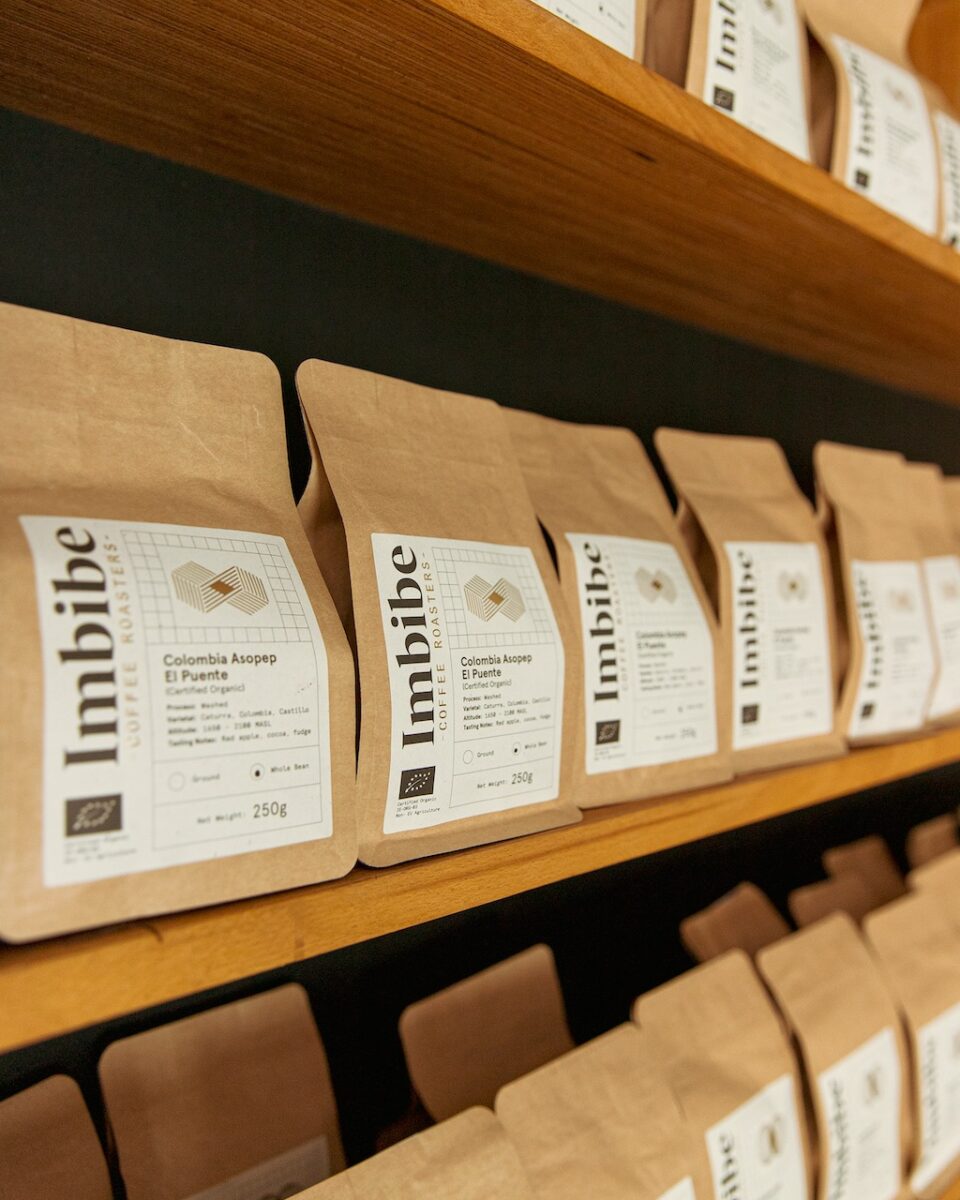
Imbibe Coffee Roasters, located in Ireland’s capital Dublin, serves some 80 cafes and restaurants, roasting and delivering high-quality coffee across the Emerald Isle. In addition to wholesale, the roastery also operates e-commerce for general consumers.
The project started out in 2009, initially as a solo endeavor by Gary Grant, who entered the world of coffee after a career in finance. In its early days, the business was centered on selling roasted beans imported from the United Kingdom. But after the country voted to pull out of the European Union, Gary decided to pivot and started afresh as Imbibe Coffee Roasters in 2018.
High-quality coffee isn’t the only thing that sets Imbibe apart. Committed to doing things differently, Imbibe sets aside 2% of its sales for donations and a further 1% for its staff. To find out what inspired Gary to run Imbibe the way he does today, we’ve spoken to him and Q grader, Monika Winiarek, who heads green bean sourcing and quality at the roastery.
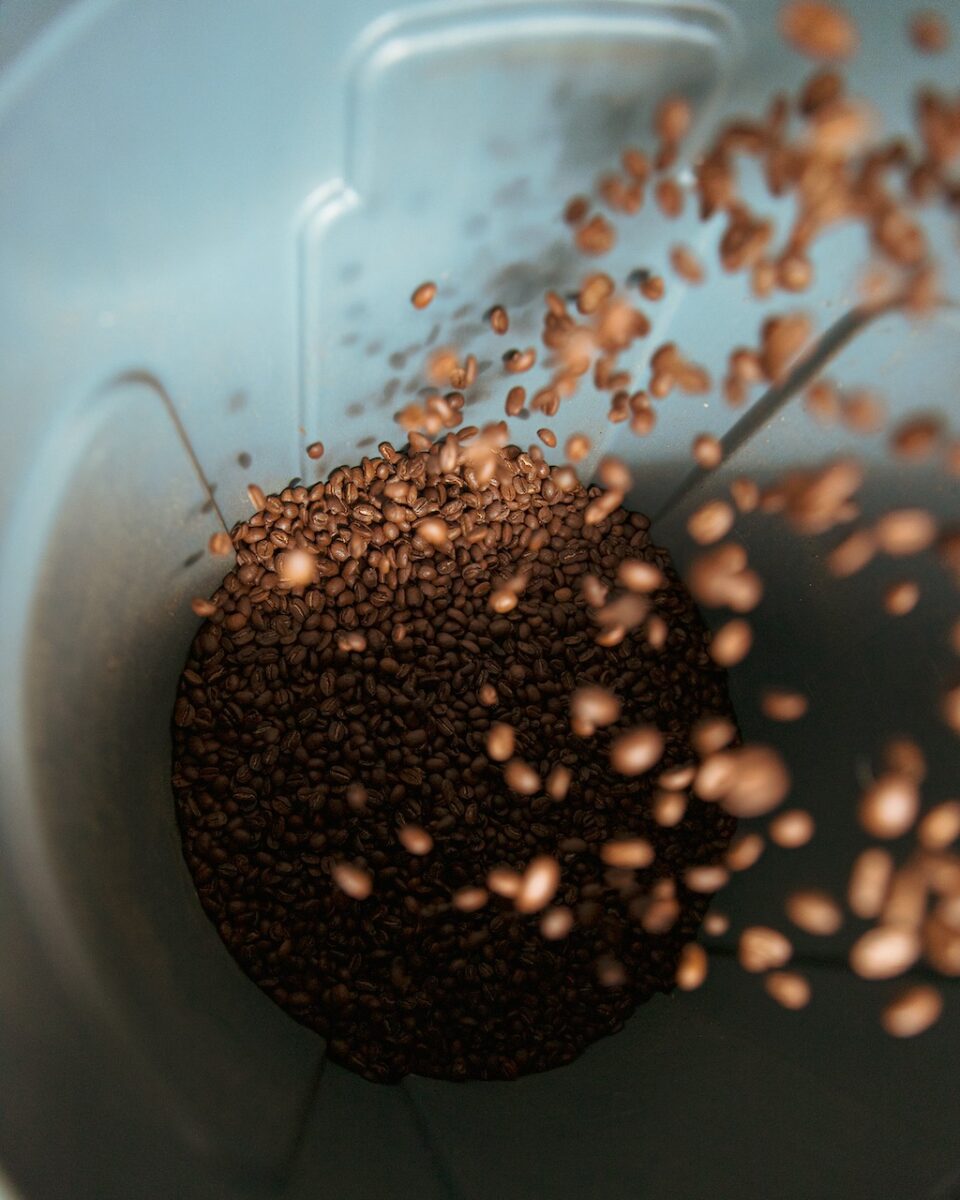
Profit is just a means to an end
The term “conscious capitalism” entered the modern lexicon in 2013. It was coined by a co-founder of US organic grocery store chain Whole Foods Market who advocated the need for successful businesses to contribute to society. This idea won the support of many.
Among them is Gary, who has put this philosophy into practice through Imbibe. For instance, the company donates 1% of its sales to Women’s Aid, a charity working to support female victims of domestic abuse. It also sets aside another 1% for projects at coffee origins and gives a further 1% to its staff. Together, these contributions made up 16% of the company’s profit in 2021.
Gary met with objections from his accountant when he mentioned his plans to donate 1% of his sales. But that didn’t stop him. He started with 1% of sales on a trial basis in the first year to see if it would be financially viable. Seeing that the initiative didn’t hurt his business, Gary raised the percentage to 3% the following year.
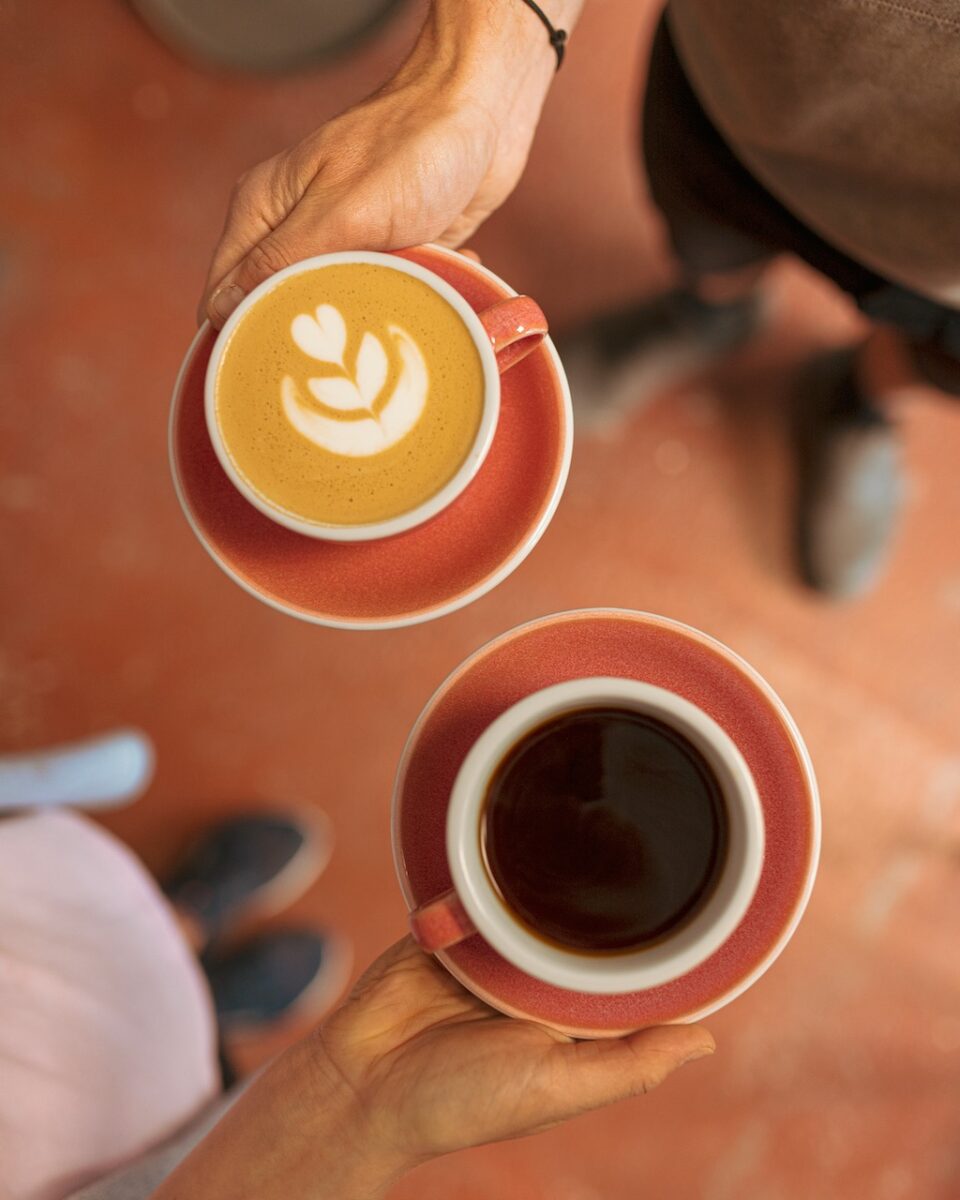
“I don’t know how much further we can increase the ratio,” Gary says, “but I hope we can add more. We are not a charity. We do business to make money. But if we could sell the best coffee available, and if donating money doesn’t stop us from doing that, why not enjoy the best of both worlds?
For me personally, it just seems a fair way of doing business. We use sales because we’ll know what the figure is going to be. It can’t be manipulated. I get annoyed by optics and green washing.
I wonder how the accumulation of things or money has suddenly become the ultimate dream of capitalism. It seems pointless. Everyone would be better off if things and money are shared more fairly.
My ambition is to continue to sell incredible coffee because the more we sell, the more the staff will earn, and the more social projects we can get involved in. Although profit is important to every business, it’s not the fundamental driver for us.”

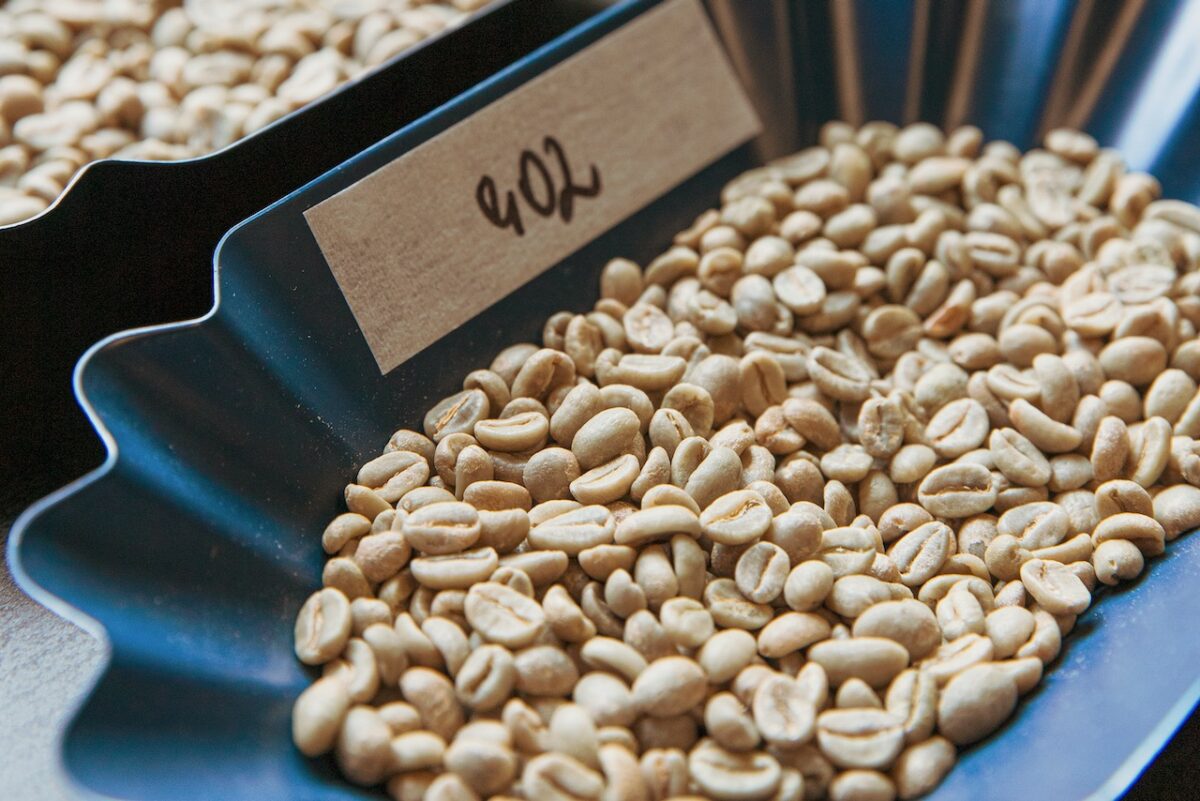
No trade-off between ethics and quality
Also important to note, when talking about Gary’s vision, is his determination to maintain the quality of coffee. Ever since Imbibe started a roastery in 2018, the company has remained steadfast in its uncompromising pursuit to deliver coffee of unparalleled quality. In fact, Imbibe was the first to bring Panama Gesha into Ireland.
“First and foremost, at the forefront of our business is coffee,” Gary notes. “We want customers to like Imbibe’s coffee first and then align with our charity initiatives.”
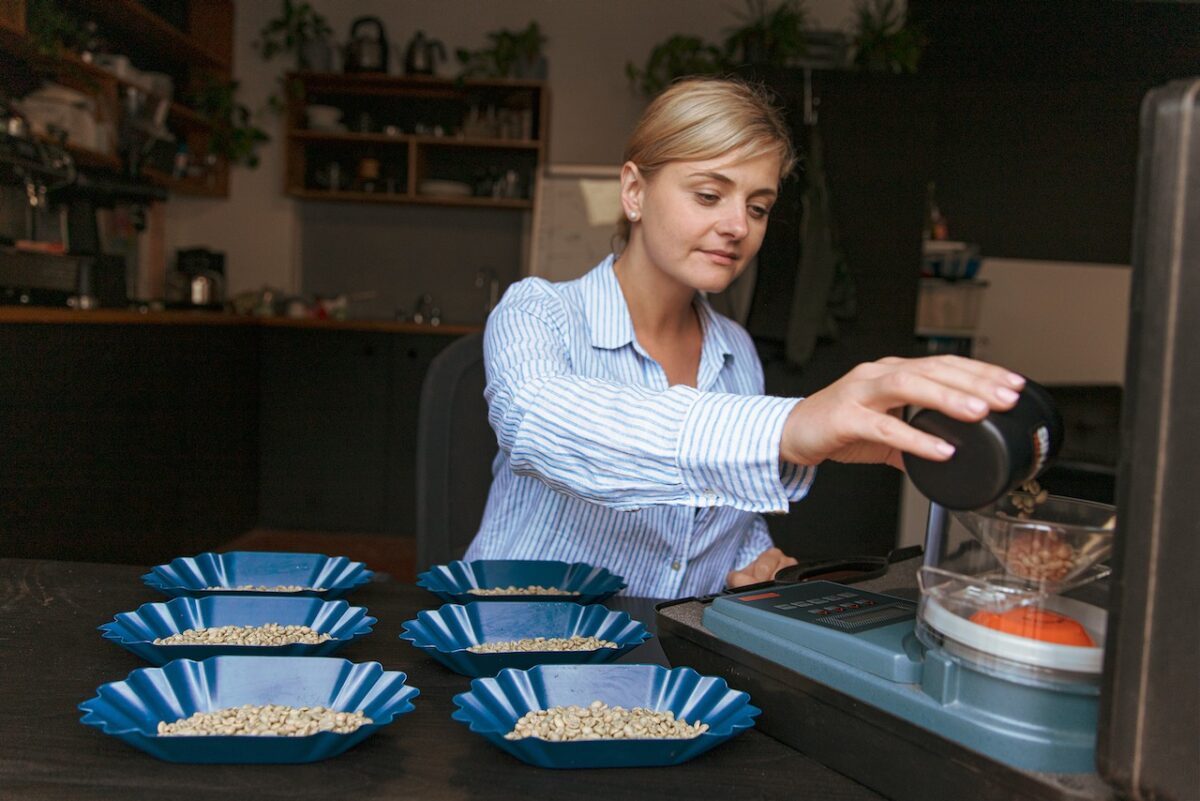
The cornerstone of Imbibe’s quality is Monika Winiarek. The winner of the 2014 Irish AeroPress Championships, she joined Imbibe in 2019 after working as store manager and training manager at Coffeeangel, a leading specialty coffee shop in Ireland.
Monika is originally from Poland. After graduating from university, she moved to Ireland with her then-boyfriend and now-husband. Having worked briefly at a McDonald’s, a turning point came when she visited a cafe where she fell in love with a beautiful pattern drawn on her latte. Soon, she decided to take a barista course at Ireland’s Specialty Coffee Association. Eventually, she started working at Coffeeangel under the tutelage of Karl Purdy, an early innovator in the Irish specialty coffee scene.
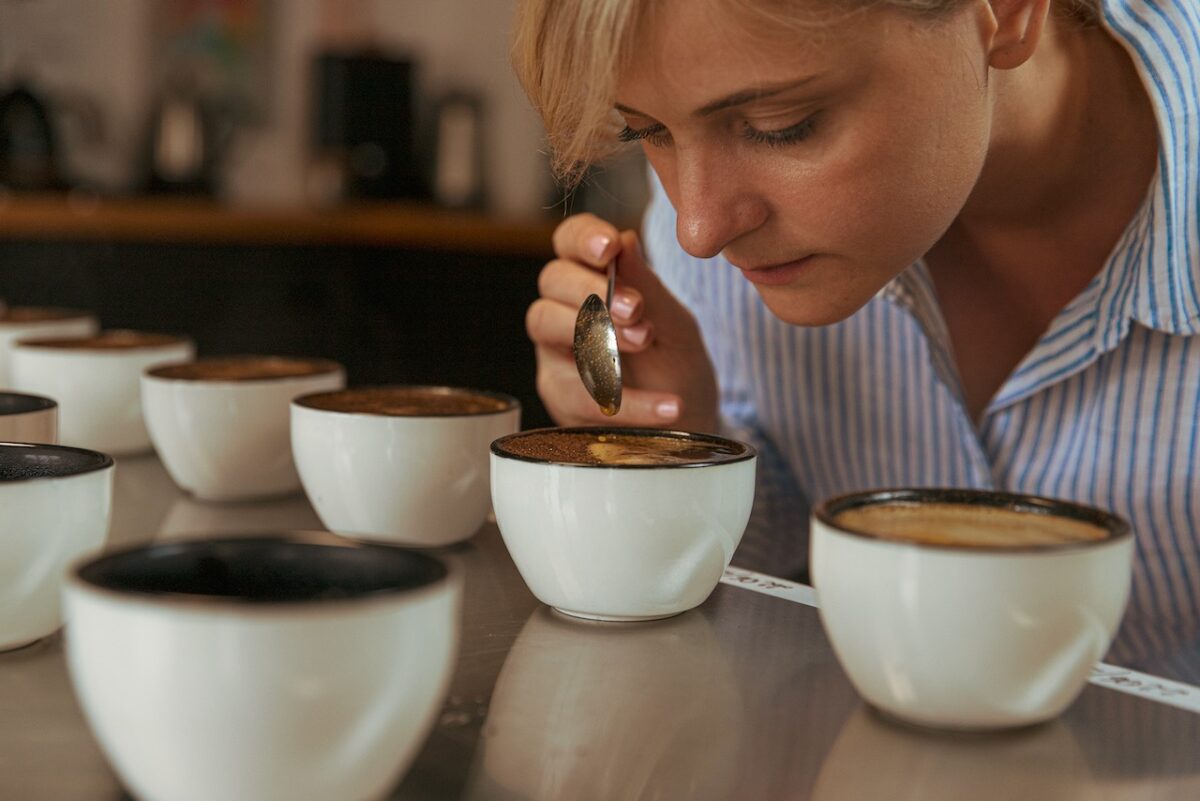
Monika spent six years there. Captivated by the taste of coffee, she went on to earn SCA certificates for brewer sensory, barista and green coffee grader. Also an Authorized SCA Trainer, Monika joined Imbibe through the introduction of a former colleague at Coffeeangel, Aidan O’Sullivan.
Gary places immense faith in Monika’s abilities. “Imagine there are 10 different coffees in front of you. Monika can point out differences between those coffees immediately. It’s remarkable how she can articulate why a certain coffee is the best one. She has a palate I can’t even dream of having. Her expertise also comes to the fore on the very rare occasions we may find defects in green coffee. Monika can spot these immediately which again means quality is never compromised.”
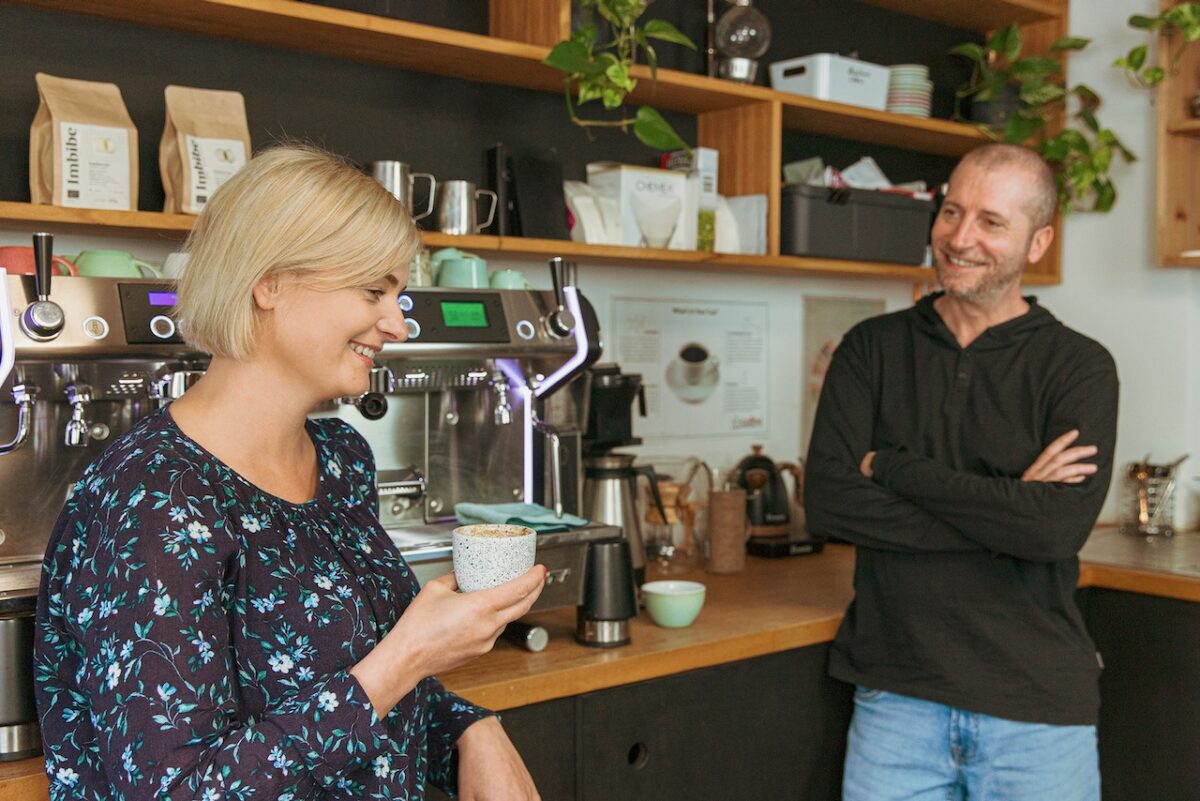
“I have a flexible budget for sourcing green coffee,” Monika says. “I can buy whatever I want, which opens a lot of doors. Before I joined Imbibe, Aidan, our head roaster, let me taste Panama Gesha. I was surprised by its quality and taste. That was one reason why I joined the company because I was fascinated by the chance to work with high-end coffees like Colombia Wush Wush.”
“Monika once said something that kind of encapsulated what this company does,” Gary chimes in. “She said, ‘There doesn’t need to be a trade-off between ethics and quality.’ It is fundamental to our business that we make absolutely no compromise on quality for making our business ethical.”

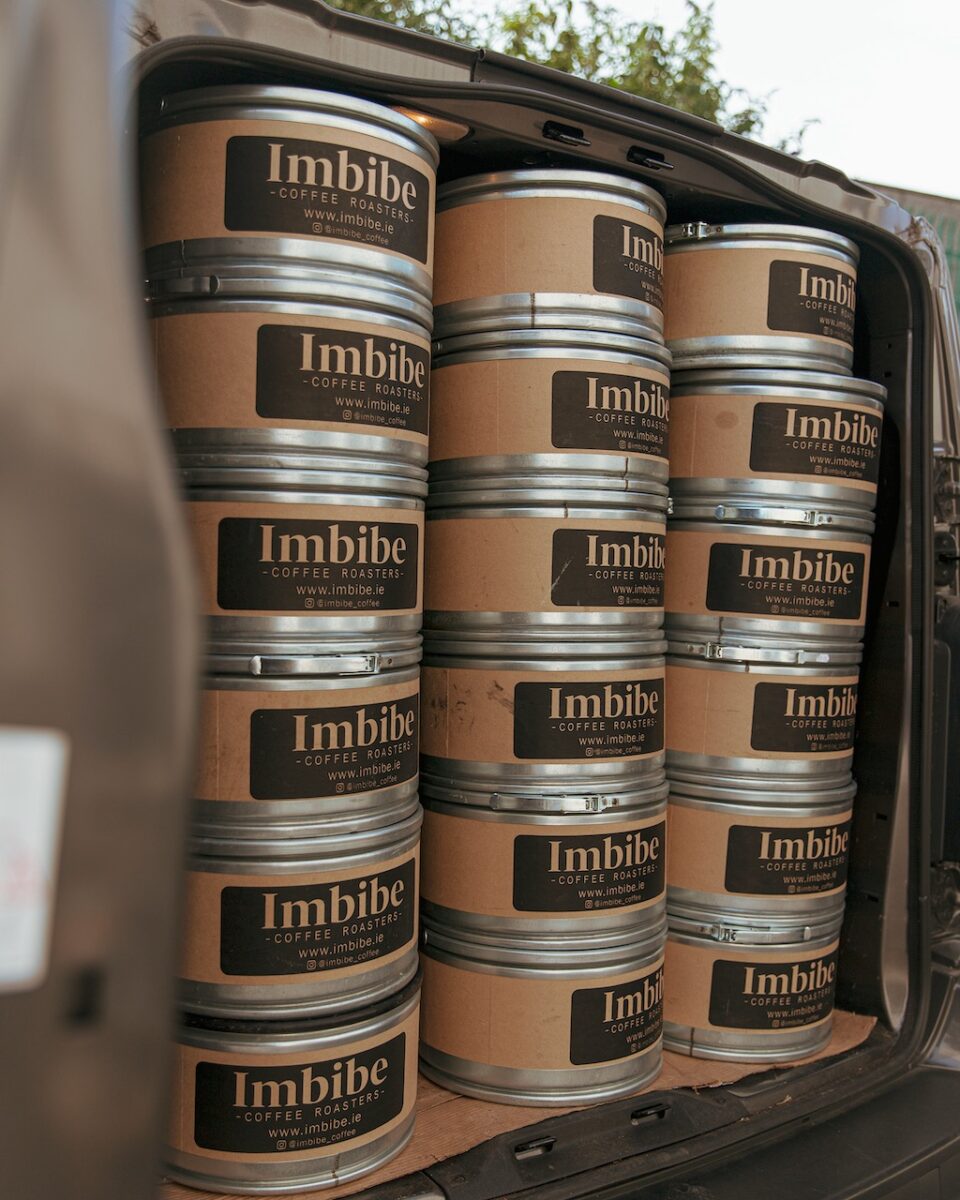
Making small yet tangible difference
Imbibe makes 93% of its wholesale deliveries in 6-kilogram reusable cans, adopting a circular model where the company collects empty cans during delivery and refills them. The staff bring coffee to their clients in Dublin roughly once every week. And doing so also helps them to maintain close contact with customers.
Imbibe’s zero-waste policy goes beyond wholesale. For retail, the company has decided to replace packaging for consumer products with recyclable materials. This was due to an Irish government announcement that the country would finally start to recycle soft plastics. They hope to introduce their new packaging by Autumn 2022, having sourced a bag supplier in Europe.
But in Gary’s mind, he is doing it just because he can. And he hopes to see a circle of support expand and other businesses follow suit.
“When our clients visit our roastery, we show them photos of coffee origins where we make donations and tell them what we do there. When they see something tangible, suddenly it becomes more real for them. They start to ask questions about it. And seeing the surprise on their face, it makes everything we’re doing more real for us as well.”

One of Imbibe’s best achievements, Gary says, is its contributions to a project to build footbridges in Colombia.
More than a few coffee producing regions around the world lack basic infrastructure. One day, a Colombian coffee exporter sent Gary a photo. It showed children around the same age as his daughters crossing a river on tree trunks on their way to school.
“Don’t get me wrong. Colombia is a comparatively wealthy country. But it struck me that life is very much contingent on where you are born and the circumstances you are born into. It’s pure luck. The photo had a big impact on me. So it just made sense to go ahead and do this project.
It was nice to know that the footbridges were completed and people were using them every day. We know something tangible has been done. We are proud of the fact that we helped their lives in a small way and made a small difference in the local community.”
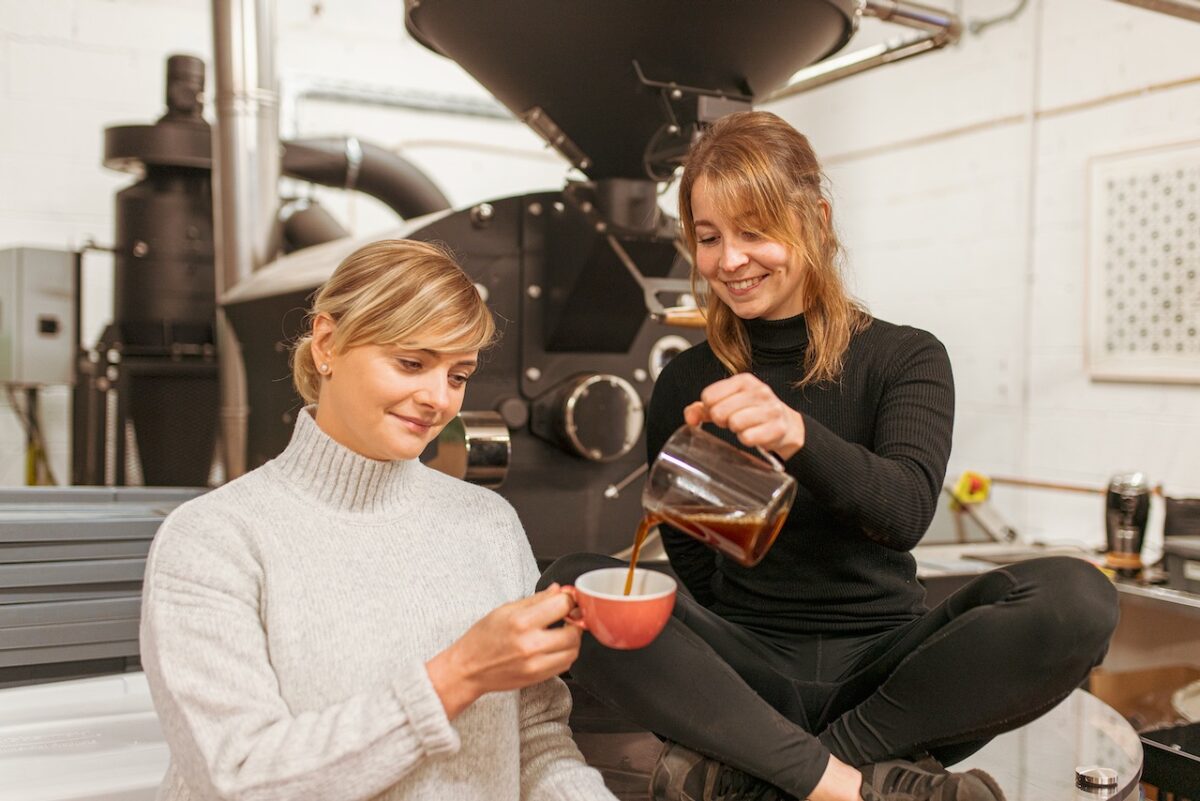
Happiness is meant to be shared
People are generous on a personal level – why, then, do businesses seem to be driven solely by profit? It was out of this fundamental question that Gary modeled his business on conscious capitalism.
“We give back 1% of our sales to our five members. That’s because Imbibe wouldn’t exist without them. They bring the expertise that I don’t have. I couldn’t do any of this without them. I’m very fortunate that I’ve never once had to ask them to work harder. Everyone does their job to a really high standard. So it only makes sense to share our sales with them.
I don’t earn any multiples above their pay so that they can earn more. They make more than the average salary for the hospitality industry. But that’s still not a lot compared with other industries.”

Increasing sales and profit is just one aspect of Gary’s efforts. He also makes it a priority to ensure healthy work-life balance for his staff. Imbibe employees work a five-day week, which is standard in Ireland and, as is also standard, get 20 days of annual paid leave. In 2022, Gary decided to give all full-time staff an additional 6 days of holiday a year in order to improve work-life balance. This was done in the form of each full-time staff member taking one Friday off every two months.
“Thanks to the extra holidays,” Monika explains. “I was able to take about three weeks off in July. I was grateful to be able to spend time with my husband and our four-year-old son.”
There is one instance Monika vividly remembers to this day. Not long after she joined Imbibe, she received an email from Gary when she was at home spending time with her son after a day of work. She quickly sent out a reply, to which Gary responded:
“Monika, it’s your family time now. I emailed you because I tend to forget things. You don’t need to read or return the message now. You are not at work. Enjoy your time with your family.”
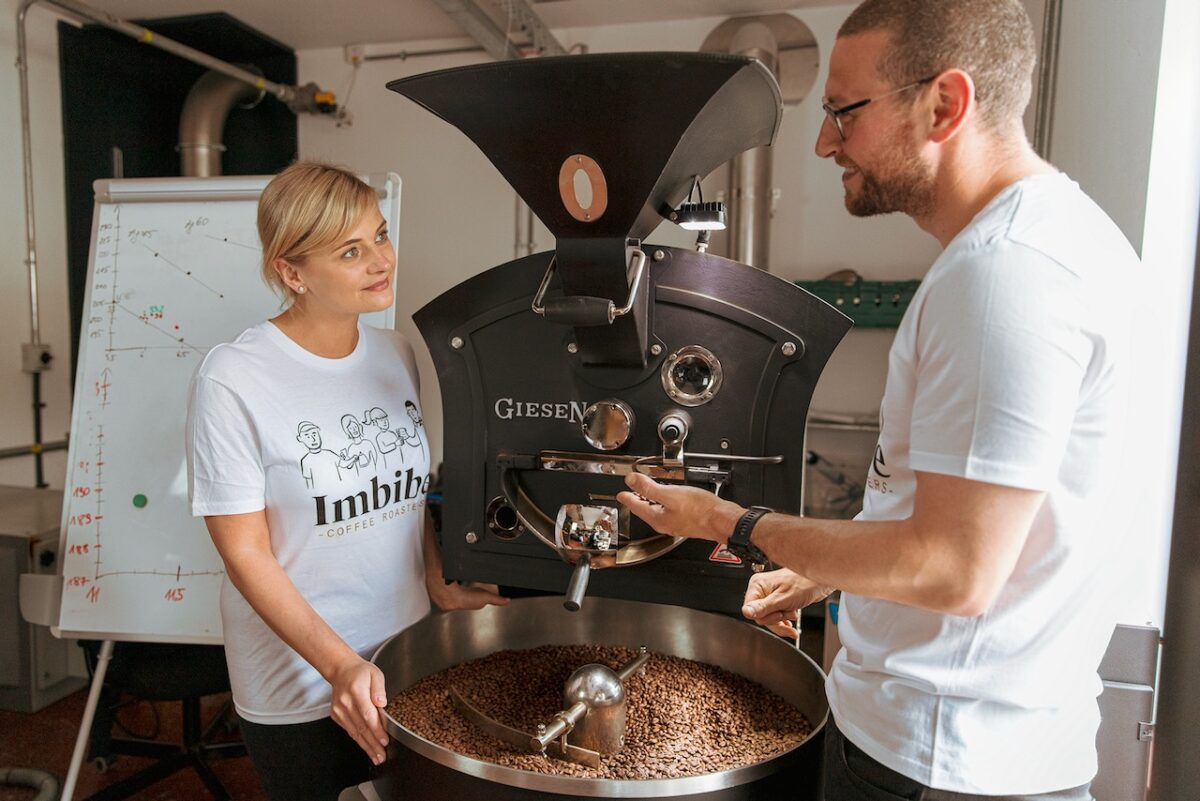
Monika says, “I want to continue to work at Imbibe and live in Ireland. On Sundays, I don’t feel like, ‘Oh, another week of work starts from tomorrow.’ I’m really really happy with my life.
My goal for now is to further improve my coffee skills. I want to study Q processing programs and deepen my understanding of the sensory aspects of coffee. It is also my hope to help Gary realize his ideals.”

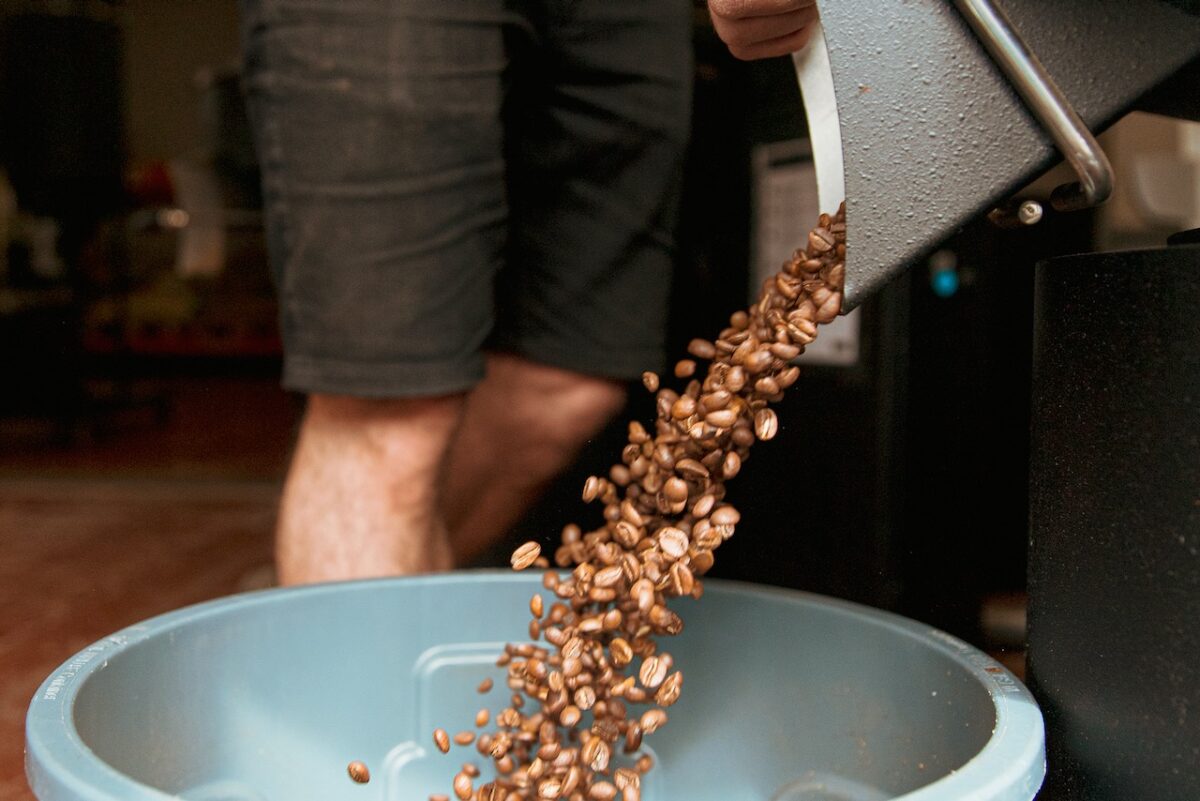
Keeping it authentic and real
When Gary was working in finance, coffee didn’t hold the special place it does in his heart today. What drew him into the coffee world was a documentary called Black Gold. The film, which depicts inequities at coffee farms where farmers are trapped in poverty and denied their fair share of profit, disturbed him, and spurred him into action.
13 years have passed since Gary started a wholesale business, with an ambition to sell coffee in a way that he believes is fair. Having stayed straight and true to this path all this time, Imbibe of today engages in charitable initiatives.
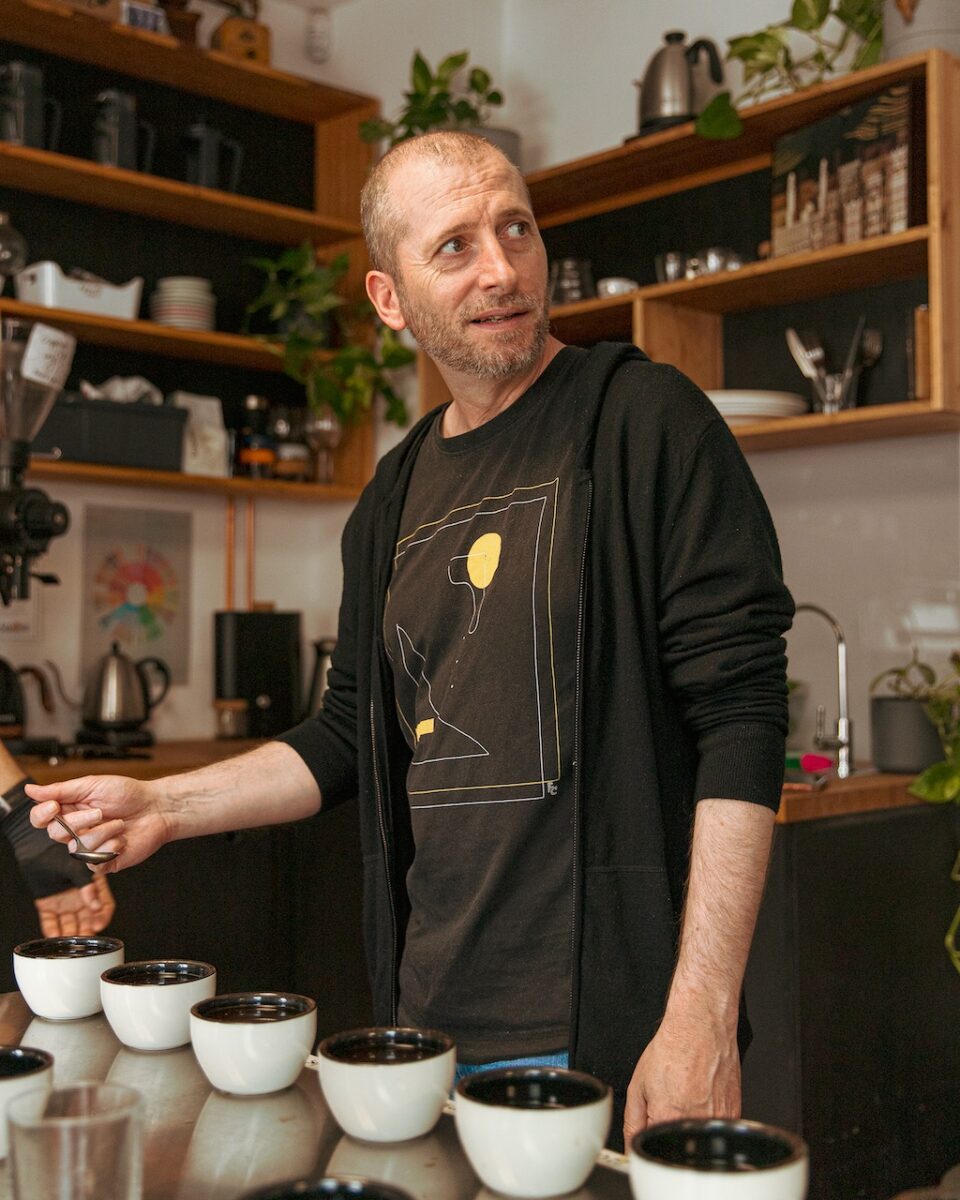
Some people may be tempted to see selfless compassion in Gary’s actions, or describe him as a man of moral integrity. But for Gary, all these plaudits don’t quite capture why he does what he does.
“I’m just doing it because I can. I own a business, and this is what I want to do. That’s all there is to it. It helps me sleep better. There may be something narcissistic about it because it makes me happy that the business is run this way. I derive far more satisfaction from giving than receiving. There is no need to get anything in return.
The same goes for our donation to Women’s Aid. Nowadays, it’s difficult to pick up a newspaper in Ireland without seeing an article about violence against women. Still, domestic abuse is seen as a big taboo. Our donation is a small way of shining a light on this issue to help drive change.
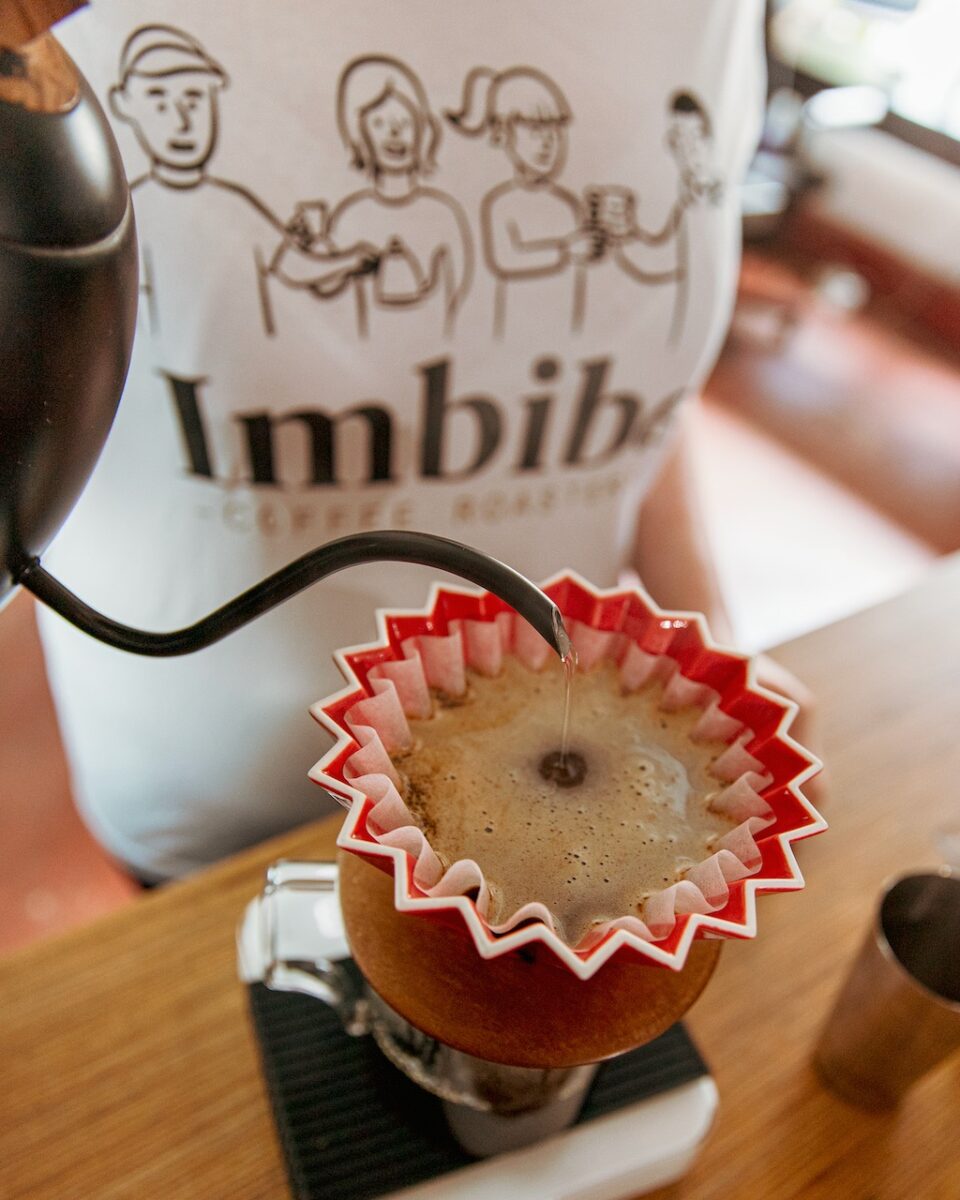
I’m not interested in optics and pretense. We are doing things because we believe in them. We want everything we do to be authentic and real. So I’m very happy to hear that two other coffee companies in Ireland are also donating 1% of their sales.
My ultimate, but extremely naive hope is to see banks and other big companies think that they can also run their business on this model. There may not be any chance of that happening. But at the same time, I have a hope that it will happen.”
Gary and Monika are on the same page when they say people in Ireland are generous, nice and friendly. Then again, kindred spirits attract each other. It is probably because they themselves believe in the good in people that generous, nice and friendly people are drawn into their lives.
Originally written in Japanese by Tatsuya Nakamichi
Photos by Natalia Biss
MY FAVORITE COFFEE人生を豊かにする「私の一杯」
Monika: I feel the happiest when I brew coffee at home with V60 for my husband and myself on weekends. It gives me comfort when we can just enjoy the moment with delicious coffee, sitting together and building Lego blocks with our son.
Gary: I have 9-year-old twins. So weekday mornings in my house are really rushed. In the middle of that chaos, I make a V60 for my wife and myself. Those four to five minutes are kind of an oasis for me. I really enjoy that respite from the madness every morning.

このロースターのコーヒー豆を購入する